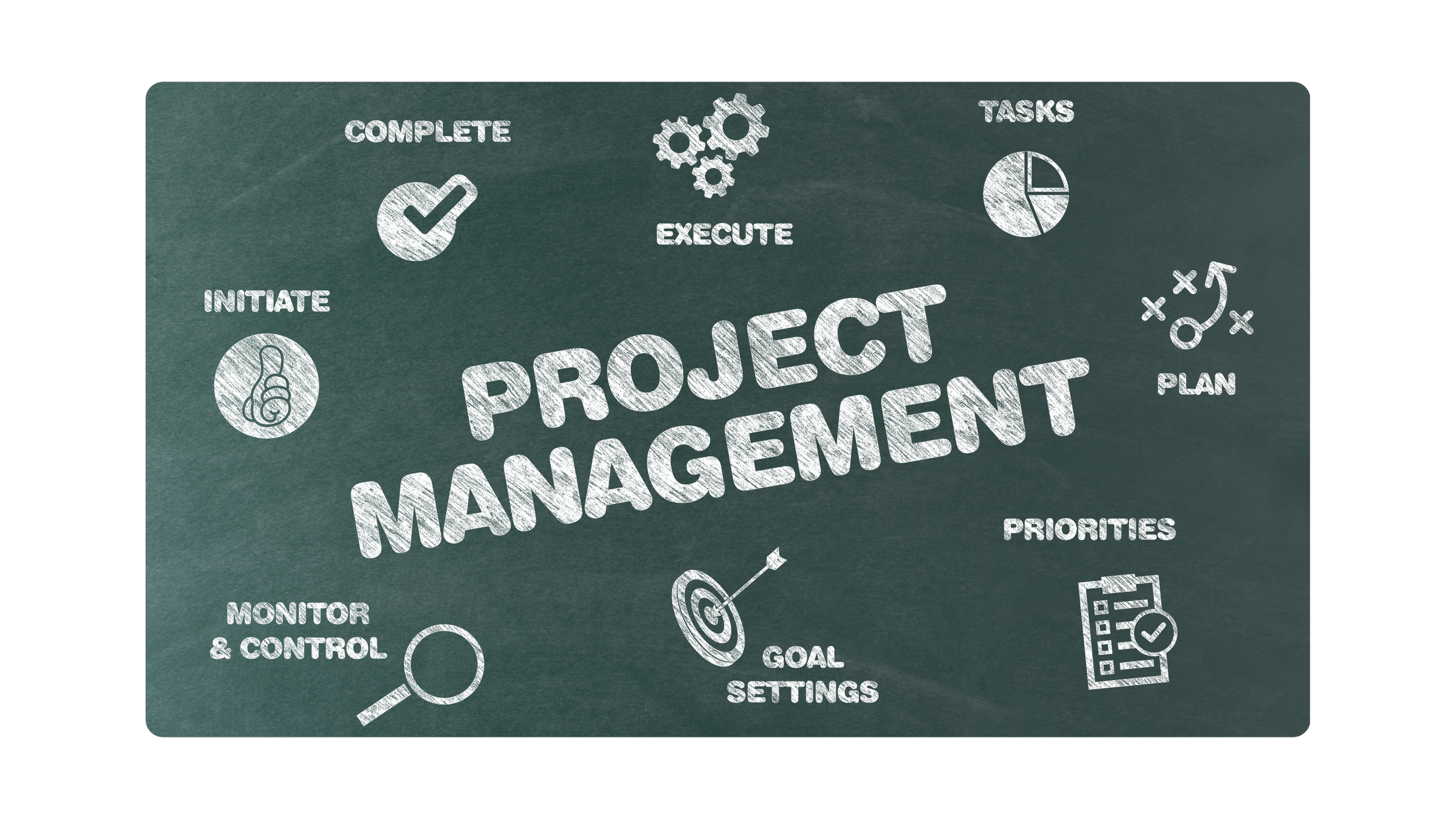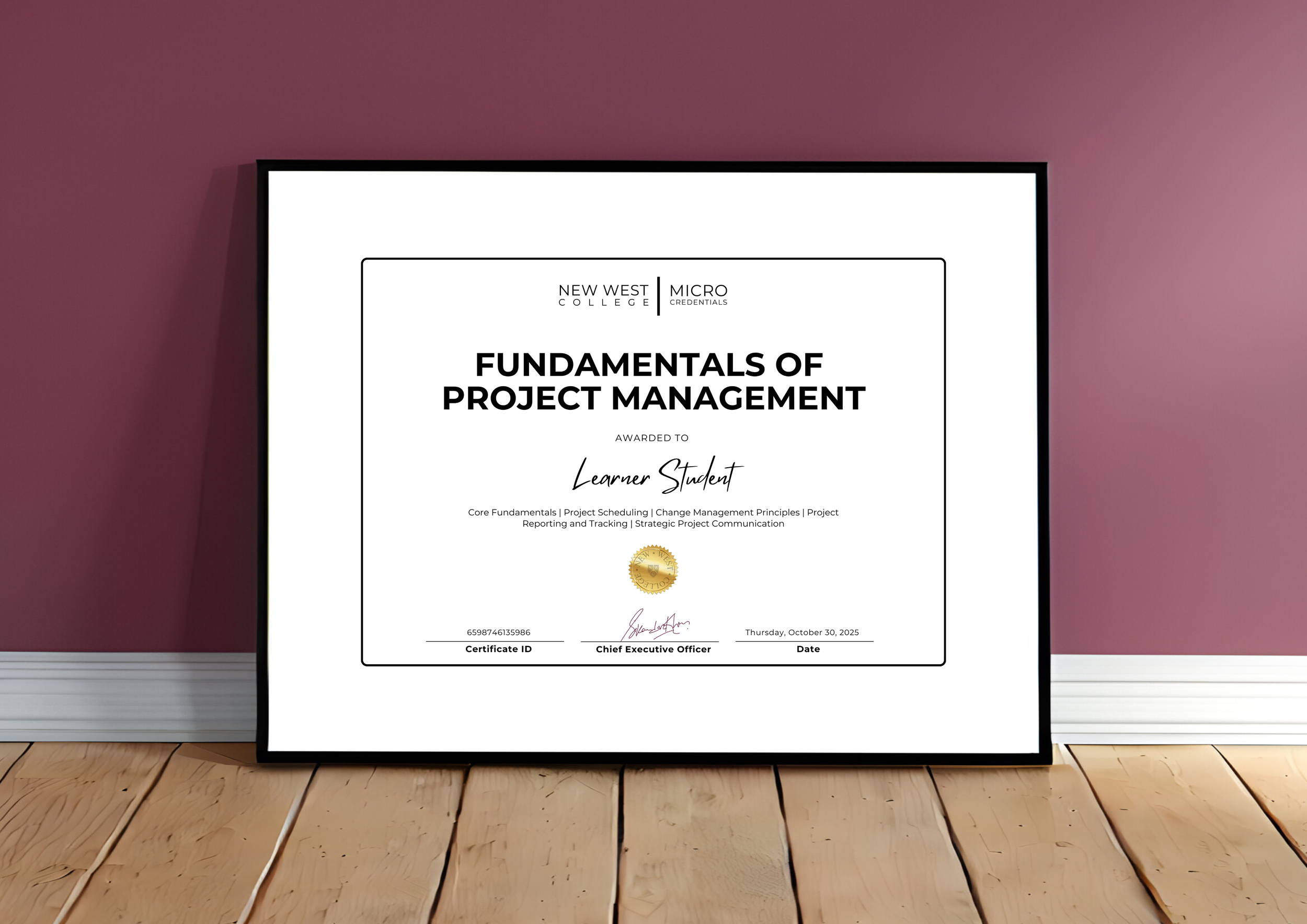Fundamentals of Project Management introduces learners to the essential skills, tools, and practices that drive successful projects from start to finish. This course gives learners a clear understanding of how projects operate, how decisions are made, and how effective planning and communication keep everything on track. Learners explore the complete project lifecycle while learning how to set goals, organize tasks, manage risks, and guide teams toward measurable outcomes. Throughout the course, learners apply practical techniques that strengthen learners’ ability to lead, collaborate, and deliver results in any professional environment.
Learning Outcomes:
➊ Explain the foundational principles of project management and apply them to real scenarios.
➋ Build project schedules that outline tasks, dependencies, milestones, and priorities.
➌ Apply change management strategies to assess impacts and guide teams through adjustments.
➍ Use reporting and tracking tools to measure progress, identify issues, and maintain visibility.
➎ Communicate clearly and confidently with teams and stakeholders throughout the project lifecycle.
Requirements:
There are no specific entry requirements for this Micro Credential, however, this credential is ideal for:
New or aspiring professionals who need foundational project management skills to support their current or future roles.
Employees who manage tasks, timelines, or small initiatives but lack formal project management training.
Career changers seeking a practical, short pathway into project-based work across any industry.
Course Content:
-
This module introduces the essential concepts of project management, including what defines a project, the responsibilities of a project manager, and the stages of the project lifecycle. Learners learn how clear goals, structured planning, and defined roles support successful execution. The module builds learners’ understanding of scope, constraints, and how projects create value.
-
Here learners learn how to translate project objectives into organized tasks and timelines. Learners explore scheduling tools such as Gantt charts, milestones, and sequencing methods to understand task relationships and dependencies. The module shows learners how to manage timelines efficiently and anticipate potential delays before they impact progress.
-
Projects rarely go exactly as planned, and this module prepares learners to manage the unexpected. Learners learn how to assess proposed changes, analyze their impact on budget, scope, and timeline, and update learners’ plans accordingly. Using structured change request processes, learners practice making informed decisions that keep projects aligned with stakeholder expectations.
-
This module teaches learners how to monitor project performance using status reports and tracking tools. Learners learn how to measure milestones, compare planned versus actual results, and identify variances. The module introduces quality management techniques such as cause-and-effect diagrams, checksheets, histograms, and Pareto charts to help learners uncover issues and maintain control of project outcomes.
-
Communication is at the heart of every successful project. In this module, learners learn how to share information clearly, listen actively, and ask thoughtful questions. Learners explore how to relay updates, lead effective meetings, manage expectations, and ensure every team member understands their responsibilities. The module emphasizes clarity, consistency, and open dialogue across all stages of the project.







